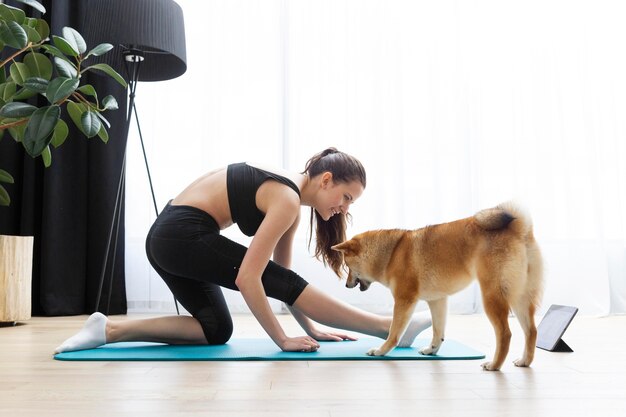

Every dog owner dreams of having a well-behaved and obedient pet. To make this a reality, it’s important to start with basic dog training. Even if competing in dog sports or events isn’t your thing, teaching your dog a few fundamental commands and good manners can make a huge difference. These skills can range from walking calmly on a leash to feeling comfortable around strangers and other animals. A well-trained dog will help build a positive relationship between you and your furry friend.
Getting started with basic dog training can happen at any time, but the earlier, the better. Teaching your dog essential socialization, health, and grooming habits early on will lay the groundwork for a happy and balanced pet. With consistent training and proper guidance, you’ll notice significant improvements in your dog’s behavior and overall health. So, let’s dive into basic dog training and set your pup on the path to success.
Socialization: The Key to a Well-Behaved Dog
Introduction
Socialization is a crucial part of basic dog training. It helps your puppy develop social skills to interact well with humans and other animals, preventing anxiety, fear, or aggression as they grow older. Here’s how to socialize your puppy effectively.
Handling
Handling your puppy daily is essential. Cuddle them and have different people gently interact with them. Hold your puppy in various positions, gently touch their feet, rub their muzzle, stroke their back and sides, and check their ears. This variety of handling helps them become comfortable around humans.
Sounds
Introduce your puppy to a variety of sounds early on. This includes kitchen noises, ringing phones, kids playing, loud TV commentators, radios, and passing buses. Be careful not to overwhelm them, though—introduce these sounds gradually.
Food Bowl Exercises
To prevent resource guarding, teach your puppy to be fine with people approaching their food bowl. Start by walking up while they’re eating and dropping a tasty treat into their dish, then walk away. Repeat this until your puppy is excited to see you approaching during meals. Eventually, pick up the bowl, add a treat, return the bowl, and leave. This will help them feel comfortable and unthreatened.
Being Alone
Help your puppy get used to being alone to prevent separation anxiety. Start by leaving them alone for a few minutes each day and gradually increase the time. This teaches them that being alone is okay and nothing to fear.
Preventing Aggression
Avoid confrontational methods like pinning your dog or scruffing them. These actions often backfire and can increase aggression. Instead, focus on rewarding good behavior and preventing bad behavior. This will build a trusting relationship and teach your puppy human rules.
Meeting New People
Introduce your puppy to new people regularly, ensuring these encounters are pleasant and non-threatening. Pay special attention to setting up positive interactions with unfamiliar men and well-behaved children. This will help your puppy get comfortable with new faces.
Preventing Biting
Redirect your puppy’s biting to appropriate toys. If they bite too hard during play, make a sudden noise like “Ow!” and stop the game. This will teach them to control the strength of their bite. Never squeeze their mouth shut, yell, or hold them down, as this can frighten them and worsen the biting behavior.
Obedience Training
Obedience training is the cornerstone of a well-mannered dog. It creates a strong bond between you and your furry friend, ensuring they know how to behave in various situations.
By following these guidelines and investing time in proper training, you’ll be well on your way to raising a happy, well-behaved dog.





